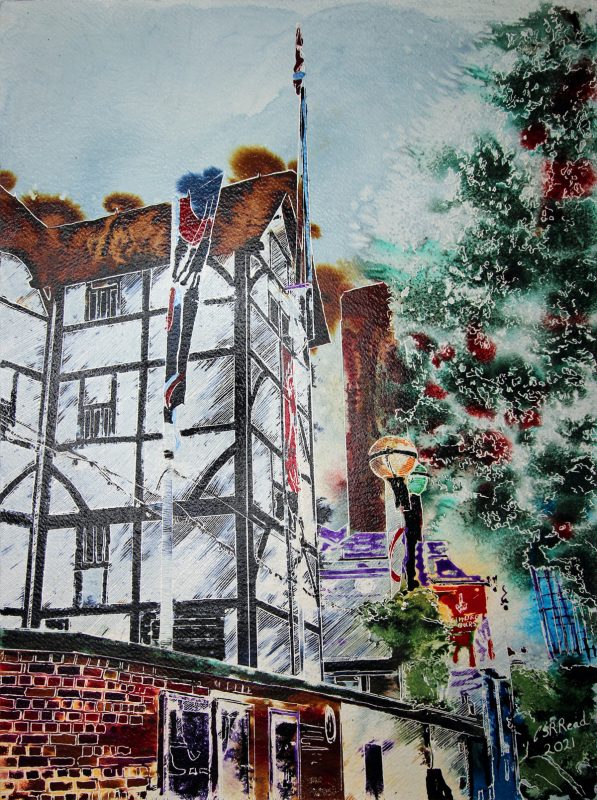Wandering along the Thames south bank, you will see many historic buildings, some over a century old. South Bank is now home to great national centres for art and culture, a vibrant and growing community and some of London’s finest achievements in architecture. When you come across the Globe Theatre, I will forgive you for thinking it is a Tudor construction. A little research will quickly set you straight.
Globe Theatre Surprises
The Globe is a marvellous contemporary recreation of a historic building using techniques of old – although a few contemporary concessions were made. For example: those are not oil lamps outside.
Tudor buildings are distinctive and have an instant Old-World appeal. A thatch roof is a particularly incongruent sight in an urban environment. Thatch hints at country villages with thatched cottages set in quaint rolling hills.
So why build it? And why here?
Shakespeare’s Globe Theatre is the brainchild of American Sam Wanamaker -director, actor, and Shakespeare enthusiast. His dream was to recreate Shakespeare’s plays in the environment for which they were written. Shakespeare’s Globe Theatre (1997-) has outlasted the original Globe Theatre (1599-1613) by six years, after the original famously burned down in a fire caused by a cannon effect in a production of the play – ‘Henry VIII’. It’s an open-air experience, so come prepared for the elements.
A Gallery Conversion
The Globe Theatre sets the scene for another recreated iconic Arts structure – the Tate Modern gallery – converted from a former power station. It holds the nation’s collection of modern art from 1900 to the present day. With 5.7 million visitors it is in the top ten most visited museums and galleries in the world.
In the painting, we visit the sites on a Saturday night. There’s a live audience enjoying the theatre and people strolling around the Embankment – but none in sight. London seems quiet, but they are engrossed in the performance.

